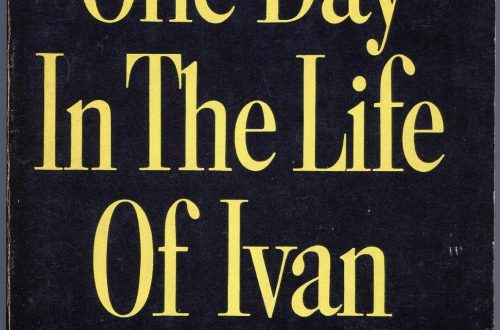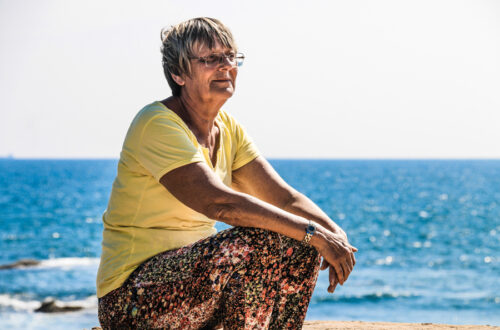Evolving in Monkey Town (How Charitable Are We as Our Picture of God Changes?)
While God never changes, our picture of him inevitably does. Most of us grow up with a picture of God we absorb from our parents and our early church and community experiences. As we age we assess the picture we’ve osmosed from others and assemble our own picture, less mediated by parents or church, perhaps more mediated by teachers, friends and, well, the media. At this point many throw out God along with their teddy bears and oatmeal, not realizing that what might be lacking is their small childhood picture of a God far greater than they can imagine.
While God never changes, our picture of him inevitably does. Most of us grow up with a picture of God we absorb from our parents and our early church and community experiences. As we age we assess the picture we’ve osmosed from others and assemble our own picture, less mediated by parents or church, perhaps more mediated by teachers, friends and, well, the media. At this point many throw out God along with their teddy bears and oatmeal, not realizing that what might be lacking is their small childhood picture of a God far greater than they can imagine.
As our understanding of God matures and our picture of him sharpens and clarifies, many of us hold on to God but take a rather uncharitable attitude toward our earlier understanding of him, and the people and communities that shaped that understanding. This, I think, is a rather common thread in many conversations I've had and in a number of popular spiritual memoirs. I’ve just begun reading one such book that comes highly recommended, Evolving in Monkey Town.
The author, Rachel Held Evans, grew up in a Christian home. Her Dad graduated from Dallas Seminary and eventually joined the faculty of Bryan College in Dayton, Tennessee, home of the infamous Scopes Monkey Trial that, back in 1925, pitted Darwinian evolution against a young earth creation reading of Genesis. Rachel appropriates the metaphor of evolution to describe her own spiritual journey from a young girl who strived mightily (and sometimes hypocritically) to win her school’s yearly Best Christian Attitude Award to become a more vulnerable and transparent Christian. From a champion of Christian apologetics to a struggle with doubt and belief. The subtitle of her book? How a girl who knew all the answers learned to ask the questions. The book jacket describes her journey "from certainty through doubt to faith."
I’m only a few chapters into it, but several thoughts strike me, some I’ll post here and others in my next blog when I have (hopefully) finished the book. First, Rachel is a delightful narrator. Her humor and unique twist on things pull me deeply into her story. In Godsight I also wrote about growing up in a unique conservative evangelical community that, for good and ill, left its mark on me and I identify with how she became her own person with her own faith on her journey.
Secondly, I’m not so sure I would use the metaphor of evolution to describe our spiritual transformation. Darwin insisted that time and chance could produce the complexity and variety of life that we see around us. On the other hand, God is massively deliberate in transforming us from one degree of glory to the next. I really do "get" the literary value of using the metaphor of evolution for spiritual transformation, especially growing up in Dayton. But, and this will seem nitpicky to some, having observed up close and personally the debris field left in the wake of Darwin’s naturalistic theory, I can’t help but wince a little each time Rachel uses it.
I was also struck by how the older Rachel mocks and not so gently condemns her younger self. Examples: "I guess when you grow up listening to Ravi Zacharias on your way to kindergarten in the morning, you kind of turn into a Jesus freak." "My strategy was to be effusively friendly to everyone I met, always looking for openings in the conversation that would naturally lead to a discussion about substitutionary atonement." Funny…but…
Actually, I can identify with her approach. In Godsight I also take my younger self to task for being a Tap Dancing Cosmic Blonde—a performer so immersed in the social scene that I rarely reflected deeply on life, especially my life with God.
What I’ve come to realize is that God has more patience with us than we have with ourselves. He loves us dearly, accepts us completely when we are tap dancing or Jesus freaking away, but is always moving closer, showing us who he really is.
The most important thing about me, about you, is our picture of God. That vision will fundamentally shape what kind of person we are and determine everything we do. All of us have these faulty, immature images of God that we take to be accurate; but they turn out to be icons of our own making. As C. S. Lewis writes in A Grief Observed, "My idea of God is not a divine idea. It has to be shattered time after time. He shatters it himself. He is the great iconoclast. Could we not almost say that this shattering is one of the marks of his presence?" This successive shattering of our pictures of God is a natural part of God moving into our lives, making his home with us and revealing himself to us (John 14:23).
Rachel and I and any one of us who catch ourselves thinking that other believers with a smaller picture of God are a little less "evolved" would do well to remember Paul’s words in Philippians 3: 14-15: "…I press on toward the goal for the prize of the upward call of God in Christ Jesus. Let those of us who are mature think this way, and if in anything you think otherwise, God will reveal that also to you."
Here Paul draws a strong link between being a really mature believer who has a more accurate picture of God and his upward call in Jesus Christ and being full of grace towards those "who think otherwise" entrusting them to God’s loving pursuit. This is so difficult, especially if we have stagnated or suffered as a result of others’ smaller pictures of God and his calling. Yet, if God deals with us so gently, faithfully revealing his heart to us, how can we not show grace and mercy to others?



5 Comments
Kelly Arabie
How true!
"God has more patience with us than we have with ourselves"
How true this rings! Thank you, Lael, for an honest look into our growing "picture of God" and a new book for me to read. 🙂
Lael Arrington
You are welcome, Kelly
When you read it I'll be interested in your response.
Kelley Mathews
Fascinating Book
Lael,
I read and reviewed this book on http://www.crosswalk.com/books just last week! Evans indeed rips into her younger self and pretty much all who hold to beliefs she held back then. I was a little stunned at the mockery in her tone, although she had some great points that evangelicals in particular need to consider. It is not an easy read for anyone who holds certain traditions sacred. Can't wait for your "part 2" on this one.
Visitor
a symantic point that may be helpful
Hey, I'm atheist (just getting that out of the way). I read some of Rachel's writings through her blog and found this site while googling around for reviews. I haven't read the book but am thinking about it (the only religious book I have ever considered actually buying and reading so far). I also study biology, so I probably don't need to say that I accept evolution as a fact, but that is not the point that I am trying to make. I'm sure that you are right that Rachel was fully conscious of the literary impact of the word 'evolution' in the context of the content and title of the bood. I just thought it might be helpful to know that the word 'evolution' is not synonymous with the concept biological evolution. It originaly meant (and in many contexts continues to mean) a process of progression. Darwin did not originally use the word to describe his theory (the common word of the day would probably have been 'transmutation' or 'transformation' or 'descent with modification'). The word 'evolution' was applied by other scientists and writers as an analogy. It is not a very good analogy (as Darwin realized and he resisted using it until years later when it had totally taken over the popular discourse and he finally gave up that fight). I could explain why it isn't a good analogy but that probably wouldn't interest you. Anyway, my point is that 'evolution' in the sense that Rachel uses it is the original meaning and biological 'evolution' is the analogy. I just wouldn't want to see you or your readers wince unneccessarily.
Lael Arrington
to my non-wincing and helpful visitor
I totally agree with your take on the word “evolution.” I’m usually careful to clarify my use of the word by identifying my meaning as “Darwinian evolution” when I use the term because the original is quite neutral: change over time. But, even moreso than in Darwin’s day, the word has come to mean so much more than the general usage. Not wincing too much.
I do hope you’ll buy Rachel’s book and, if you like her voice, try Blue Like Jazz by Donald Miller. We need the dialogue that these young authors bring to the discussion of faith, but, at some point, we also need more than uncertainty and truckloads of unanswered questions. (I’m all for less presumption and more mystery and I’ve “evolved” too in this area.) However, risk taking for Christ and his Kingdom to live and love well require boldness and confidence in our beliefs about God and his kingdom. At some point we have to drive a stake in order to act. I look forward to seeing where Rachel’s journey takes her.